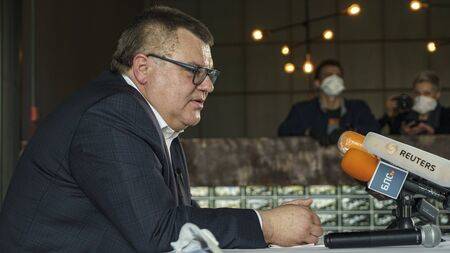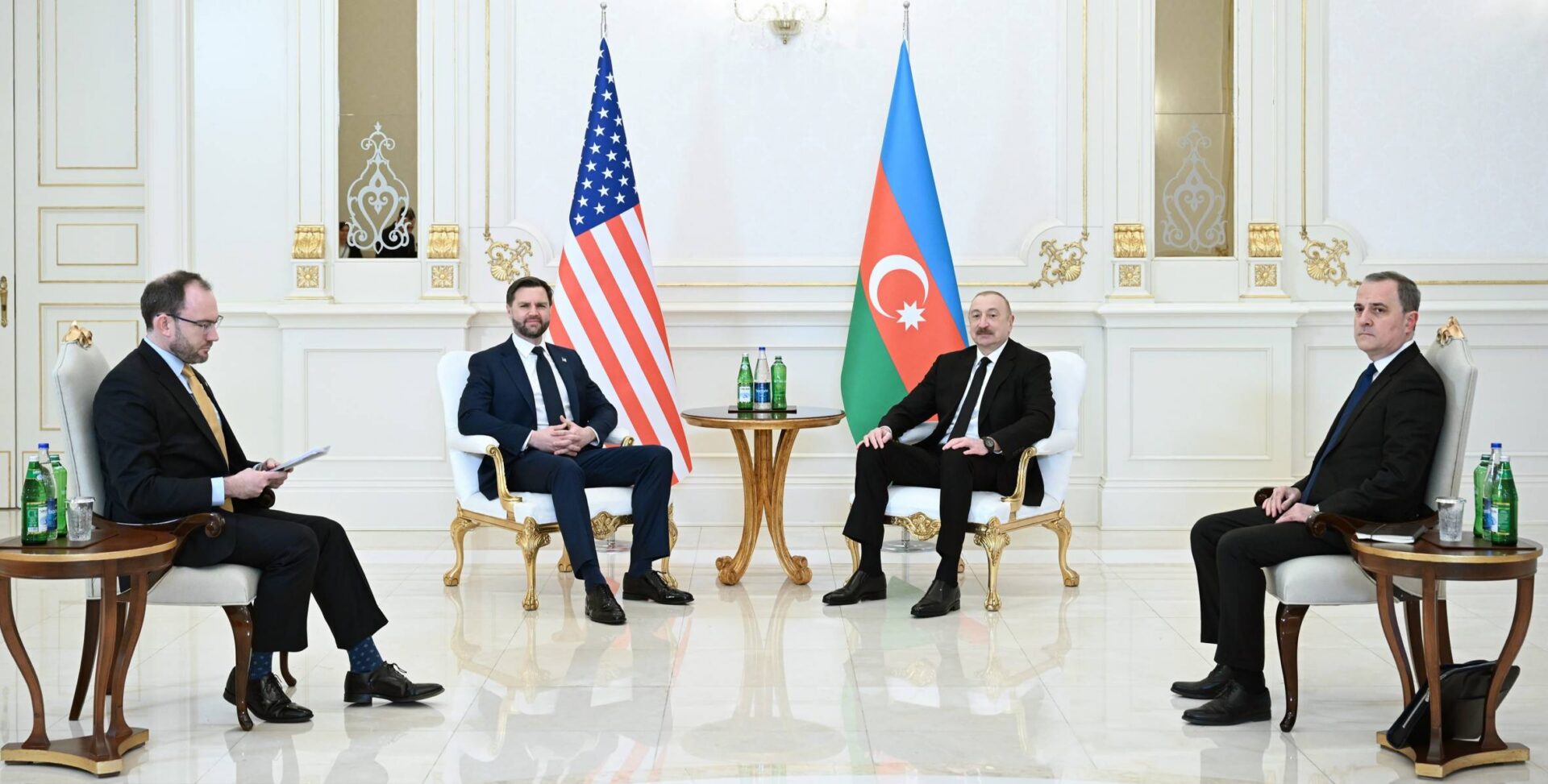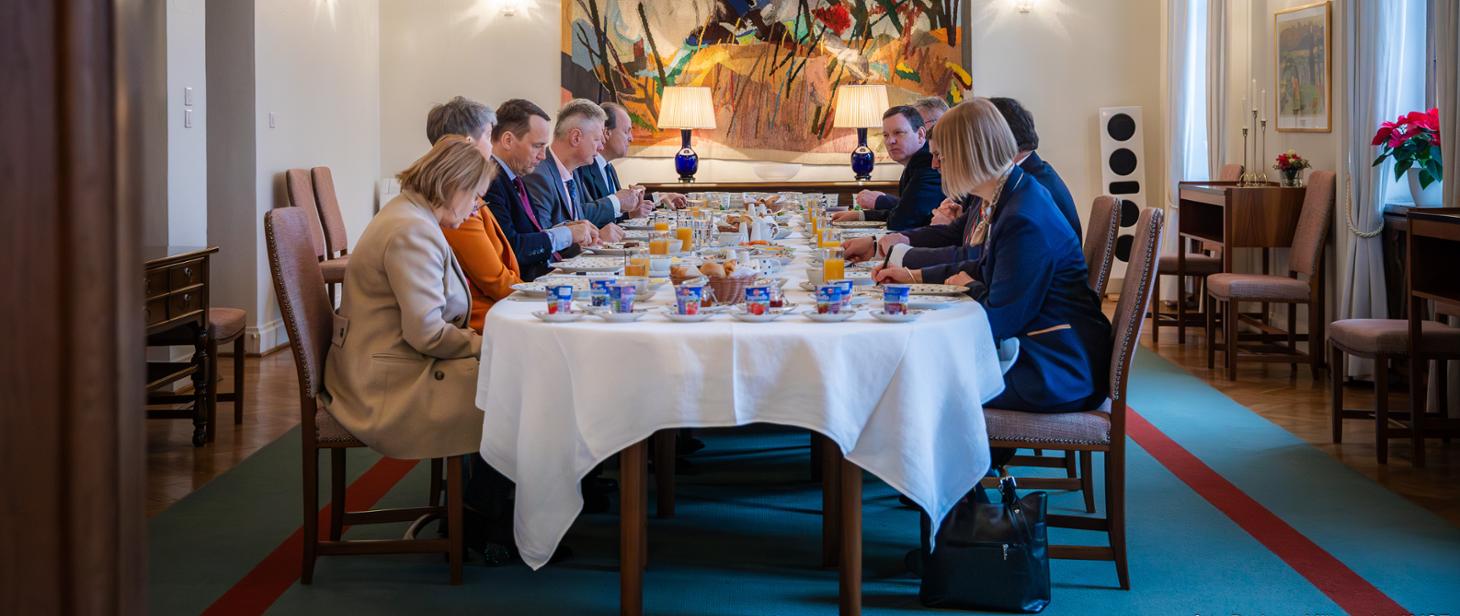
Is Belarus’s Presidential Campaign Running Aground?
Is Belarus’s Presidential Campaign Running Aground?
The electoral campaign in Belarus is developing like the plot of a mystery novel. Two obstacles seem to stand in the way of its impartial description: the sheer number of new developments and groupthink. The former makes it difficult to see the forest for the trees. The latter means that, with the society in question not particularly cohesive, it is easy to mistake a biased view for an even-handed assessment. When Vitali Tsyhankou of Radio Liberty, an avowedly anti-“regime” pundit, suddenly suggests that the supporters of Victor Babariko, President Alyaksandr Lukashenka’s major challenger, “may overestimate the degree of Babariko’s popularity and the protest capabilities of those who saw him as a candidate of hope” (Naviny, June 12), this is a striking admission. Most opposition-minded media outlets have been portraying Babariko as someone who has already won the popularity contest.
Tsyhankou’s colleague Yury Drakakhrust once recalled how, back in 1994, he could not name a single acquaintance who voted for Lukashenka. That anecdote, however, only attested to Lukashenka not being popular within Drakakhrust’s private circle. Nevertheless, Lukashenka’s 1994 electoral outcome (80.6 percent of the vote) was never questioned—unlike his four subsequent ones. Likewise, today, when multiple opposition-minded opinion-makers suggest Lukashenka’s rating has dwindled to 3–6 percent of the electorate (Village, June 3), it is worth heeding alternative evidence. President Lukashenka’s own electoral team says they have already secured more than 1.5 million signatures in support of him (Svaboda.org, June 12), and a presumed leak from a government-ordered survey reveals that, in Minsk, where Lukashenka’s support has generally been 1.4 times lower than in the rest of Belarus, 24 percent are in favor of the incumbent (Nasha Niva, June 6). That suggests Lukashenka’s true rating, though apparently underwater, may not be as low as some wishful thinkers suggest.
Incidentally, Radio Liberty recently published interviews with five young Lukashenka supporters (Svaboda.org, June 8). Also, in an extensive interview to the same outlet, Oleg Manaev, the founder of the most reputable Belarusian polling firm (terminated by the authorities in 2016), now working for the University of Tennessee, opined that Belarus’s power vertical is not crumbling (Svaboda.org, June 8). With varying justifications, identical opinions were expressed by Fyodor Lukyanov, a prominent Russian expert (Svaboda.org, June 8); Nikolay Petrushenko, an activist of “Just World,” a splinter communist group (Politring, June 11); Eugen Magda, a Ukrainian expert (Svaboda.org, June 10); and David Marples, a seasoned Western Belarus-watcher (Svaboda.org, June 10).
While the electoral situation in Belarus is nominally a domestic affair, it is—as has always been the case—indirectly being shaped by geopolitics. Thus, on June 6, Prime Minister Viktor Orbán of Hungary visited Minsk and spoke in favor of the European Union removing its remaining sanctions on Belarus (Kormany.hu, June 6). On June 19, Russia’s Foreign Minister Sergei Lavrov is expected to visit Minsk to eventually sign the agreement on mutual recognition of visas issued for residents of third countries (Tut.by, June 10). The deal with Russia has been in the works for years and was motivated by Belarus’s allowing visa-free travel to countries of the West. Finally, on June 24, Lukashenka will attend the postponed Victory Day military parade in Moscow (Lenta.ru, June 10), after snubbing Vladimir Putin by not delaying his own parade (see EDM, May 12).
Like the bilateral visa-recognition agreement, the idea to abandon cellphone roaming charges between Russia and Belarus has been long in the works. But as soon as the EU announced its intention to mutually abolish roaming charges with Belarus (Village, May 20), Moscow and Minsk announced they will finally achieve this amongst themselves in September (Onliner, May 27). “I now understand the hidden meaning of the existence of the European Union and the West as a whole,” playfully suggested Alexei Dzermant, a pro-government analyst. “They are a magical ass-kicker that gives us speed” (Facebook.com/alaksiej.dziermant, June 6). Consequently, he hypothesized that a positive factor in price negotiations with Russia on natural gas might be the arrival of liquefied natural gas (LNG) from Qatar.
Turning to the electoral campaign itself, a major event on that front has had powerful geopolitical undertones, as well. On Thursday, June 11, fifty masked detectives of the State Control Committee showed up at the head office of Belgazprombank (which Victor Babariko headed for two decades) and searched the premises. Searches were also conducted at several business structures related to the bank. Fifteen people were apprehended, including close friends of Babariko, and a criminal case has been opened on tax evasion and money laundering (Onliner, June 11). Subsequently, the Central Bank of Belarus replaced the entire leadership team of Belgazprombank; Russia’s Gazprom has called this action illegal (Tut.by, June12) as only stakeholders could direct such a swapping out of top executives. It is worth noting that the besieged bank is a Gazprom-controlled entity, with practically no Belarusian capital.
Days earlier, Babariko gave two major interviews in which he evinced stellar self-confidence, suggesting that the willpower of 3.5 million, which is how he apparently assesses his electoral strength, cannot be neglected. If Lukashenka discounts them, he may experience the same fate as Nicolae Ceausescu of Romania, Babariko warned (Svaboda.org, June 11). In turn, following the bank search, Lukashenka called Babariko a villain and declared that the bank was under investigation since 2016, but foreign financial institutions only responded to Belarus’s inquiries recently. In the wake of these events, commentators have been debating what Lukashenka’s next steps might be. The incumbent himself suggested that he will not put Babariko under arrest, at least for now, despite alleged evidence of wrongdoing. An arrest would surely make a prisoner of conscience out of him, which Babariko could take advantage of. Instead, the authorities should go ahead and register him as a presidential candidate, Lukashenka suggested (Naviny, June 12). Notably, Babariko’s initiative group claims it has already collected nearly 400,000 signatures (only 100,000 valid signatures are required). Thus, two possibilities exist, according to multiple experts: Either Lukashenka will succeed in discrediting Babariko, whose rating will plummet as a result, or, if this cannot be achieved, Babariko may be disqualified after registration based on some other real or imagined violation of campaigning law.
Neither option is particularly appealing to the opposition; for some, their hopes will be dashed. Others will feel vindicated. Still another group talks about Gazprom’s “treacherous interference in Belarus’s elections.” In the meantime, the future of Belarus’s political scene remains uncertain.


